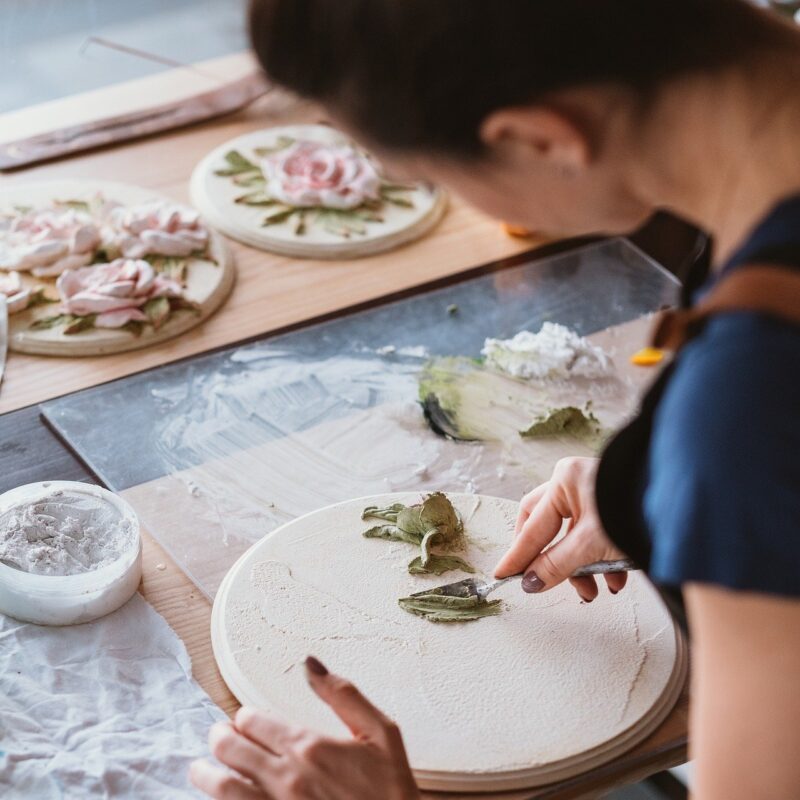The Islands Where You Can Learn Traditional Skills From Local Communities
November 16, 2024

As the world rapidly modernizes, traditional skills and crafts preserve cultural heritage, provide sustainable livelihoods, and foster community resilience. Across the globe, certain islands have become vibrant hubs for learning these age-old techniques from local communities. This article explores some of the most enchanting islands where travelers can immerse themselves in local cultures while acquiring unique traditional skills.
1. Fiji: The Art of Weaving and Carving
Fiji, known for its breathtaking landscapes and warm hospitality, is also home to intricate arts and crafts that have been passed down through generations. Visitors can learn the art of Fijian weaving and wood carving from local artisans in villages such as Navala and Nadi.
A typical weaving workshop includes:
- Materials Used: Participants selected from natural fibers like coconut husk, hibiscus, and pandanus leaves to create baskets, mats, and hats.
- Techniques Taught: You will learn the traditional weaving techniques that have been used for centuries, including plaiting and twining methods.
- Carving Workshops: Delve into wood carving where artisans teach how to sculpt figures, bowls, and ceremonial masks using local wood types and hand tools.
Engaging with the community through these workshops offers insights into Fijian culture and a chance to contribute to the preservation of their traditional crafts.
2. Bali, Indonesia: Traditional Balinese Cooking & Craftsmanship
Bali is not just a destination for scenic beaches and yoga retreats; it is also a treasure trove of traditional skills waiting to be discovered. Balinese cooking classes are popular among travelers seeking to delve deeper into the local culinary arts.
In these cooking workshops:
- Market Visits: Participants often start by visiting local markets to purchase fresh ingredients, learning about the spices and produce native to Bali.
- Culinary Techniques: Under the guidance of local chefs, participants will prepare authentic Balinese dishes such as Nasi Goreng, Sate Lilit, and Bumbu Bali, while learning about the significance of each dish in Balinese culture.
- Balinese Ceramics and Crafts: Apart from cooking, Bali is known for its artistic craftsmanship, including traditional ceramics and batik making. Workshops in Ubud let you create your own pottery or batik fabrics using natural dyes.
By partaking in these activities, participants not only gain valuable skills but also foster connections with the local community, understanding the cultural importance behind every dish and craft.
3. Hawaii: Hawaiian Cultural Experiences
Hawaii is a paradise not just for its stunning landscapes and oceanic beauty but also for its rich cultural heritage. Learning about traditional Hawaiian crafts is deeply rewarding for visitors.
Popular skills to learn in various workshops include:
- Hula Dancing: Experience the rhythmic dance of hula, which is closely tied to Hawaiian culture and storytelling. Classes often include lessons on the meaning behind the dances and the associated chants.
- Lua Skills: Discover the ancient Hawaiian martial art of Lua, integrating combat techniques with cultural values and self-defense strategies.
- Crafting Hawaiian Leis: Traditional lei-making workshops allow you to create beautiful garlands from fresh flowers, leaves, and other natural materials while learning about their significance in Hawaiian culture.
These cultural experiences provide a deeper understanding of Hawaiian values, history, and traditions, ensuring that visitors feel a true connection to the islands.
4. Azores, Portugal: Traditional Fishing and Agriculture
The Azores, an archipelago in the mid-Atlantic, is celebrated for its agricultural practices and fishing techniques that have been maintained for centuries. Visitors can immerse themselves in rural life and learn from local farmers and fishermen.
Workshops might include:
- Cheese Making: The Azores is renowned for its artisanal cheese. Learn the traditional methods of cheese production from local dairymen, understanding the unique processes right from milking to aging.
- Whale Watching and Traditional Fishing Techniques: Participate in guided boat tours where you can learn traditional fishing methods, such as handlining and net fishing, while enjoying the stunning waters surrounding the islands.
- Terrace Farming: Engage with local farmers to learn about terrace farming, an ancient agricultural technique adapted to the island’s landscape, allowing the cultivation of diverse crops through sustainable practices.
Learning these skills not only offers a hands-on experience but also a chance to support sustainable practices that have endured through generations in the Azores.
5. Malta: Crafting and Cultural Heritage
Situated in the Mediterranean, Malta is renowned for its rich history and traditional crafts. Visitors can delve into a variety of workshops that showcase the island’s artistic heritage.
Among the traditional skills to learn are:
- Maltese Lace Making: Experience the intricate art of lace-making, which has been a part of Maltese culture for centuries. Classes are often conducted in family homes where artisans share their techniques and stories.
- Ceramics and Pottery Making: Participate in pottery workshops where you’ll learn to create traditional Maltese ceramics, often adorned with vivid colors and patterns emblematic of the region’s style.
- Photography Classes in Historical Settings: Malta’s historic sites and stunning landscapes serve as perfect backdrops for photography workshops led by local photographers who share tips on capturing the essence of Malta’s culture and scenery.
These workshops provide not just practical skills but also a glimpse into the heart of Maltese culture and history.
Conclusion
Exploring islands that offer traditional skills class provides travelers with a unique opportunity to connect with local cultures on a deeper level. Each island, with its rich tradition, offers diverse experiences that enrich lifestyles and deepen appreciation for craftsmanship. Whether it’s weaving in Fiji, cooking in Bali, or lace-making in Malta, the journey towards learning and understanding these skills fosters community resilience and cultural preservation.
By participating in these workshops, you not only enhance your own skill set but also become a part of a story that spans generations, ensuring that the beauty of traditional crafts and skills continues to thrive within communities around the world.








